25+ SAMPLE Marketing Budgets
-
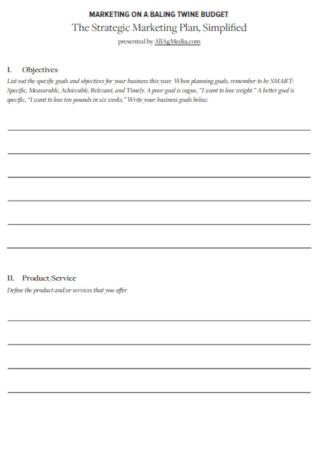
Product Marketing Budget Template
download now -
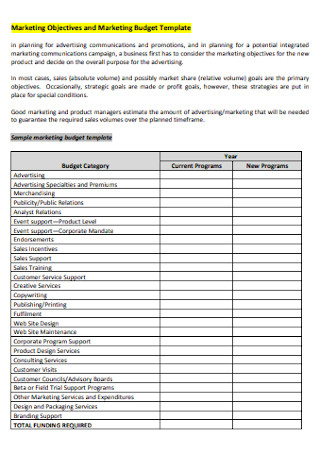
Marketing Advertising Budget Template
download now -
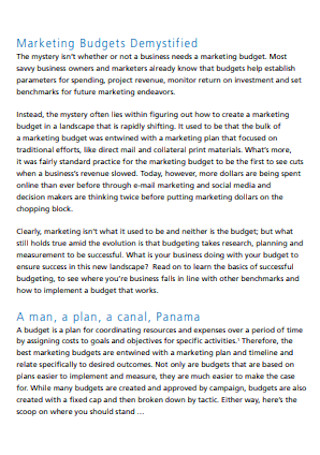
Marketing Budgets Format
download now -
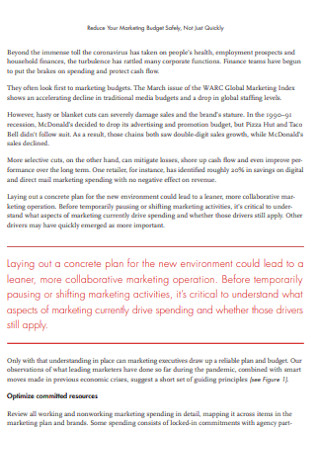
Company Marketing Budget Template
download now -
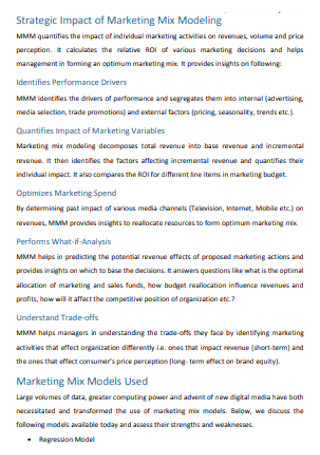
Strategic Marketing Budget Template
download now -
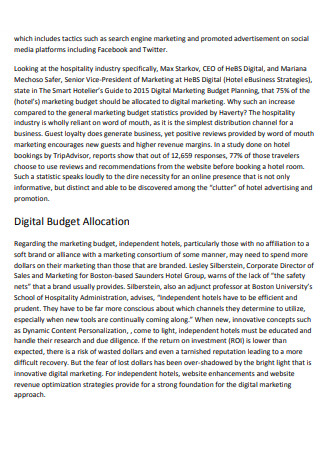
Digital Marketing Budget Template
download now -
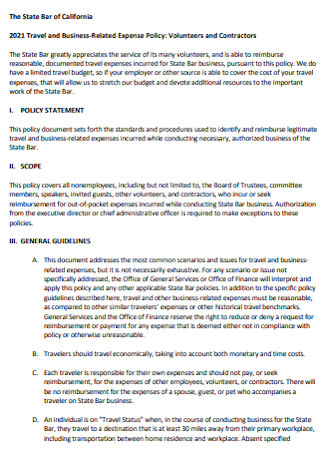
Travel Business Budget Template
download now -
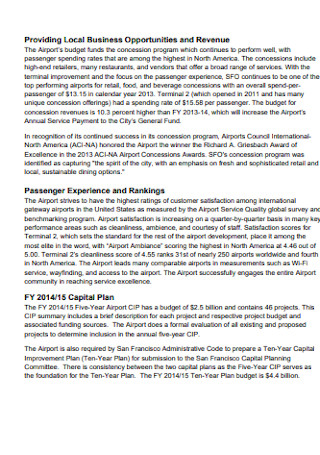
Business Operating Budget Template
download now -
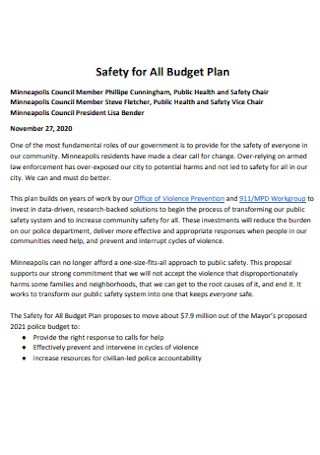
Safety for Marketing Budget Plan
download now -

Annual Business Plan Budget
download now -
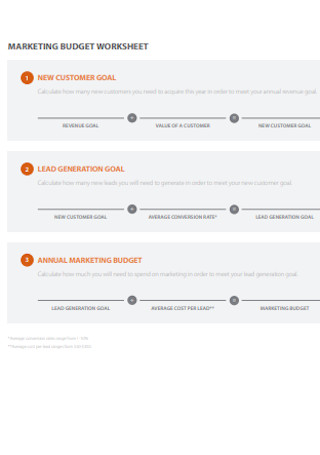
Marketing Budget Worksheet
download now -
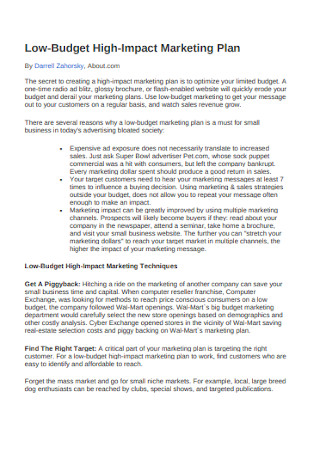
Annual Marketing Plan Budget
download now -
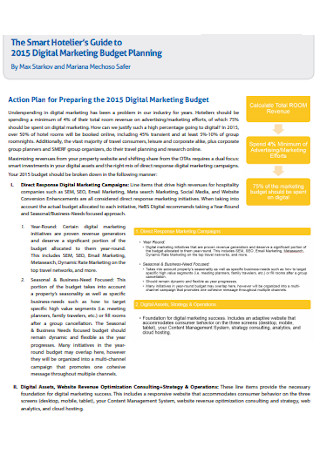
Digital Marketing Planning Budget
download now -
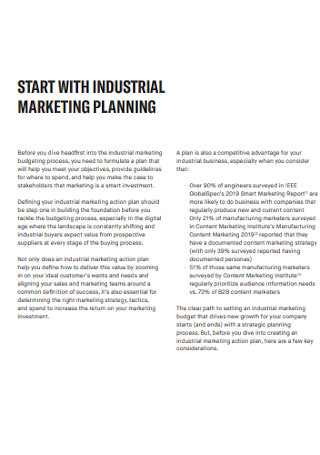
Industrial Marketing Budget
download now -
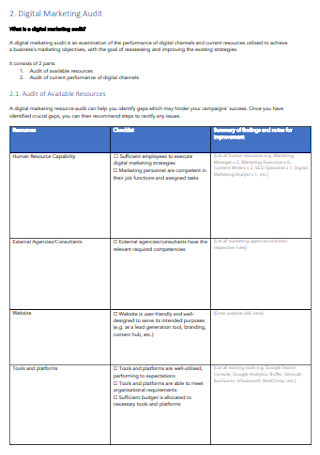
Digital Marketing Audit Budget
download now -

Annual Business Plan Budget
download now -
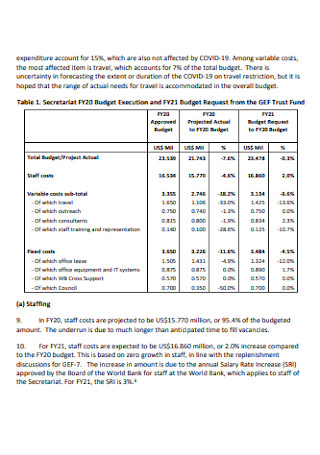
Corporate Business Budget
download now -
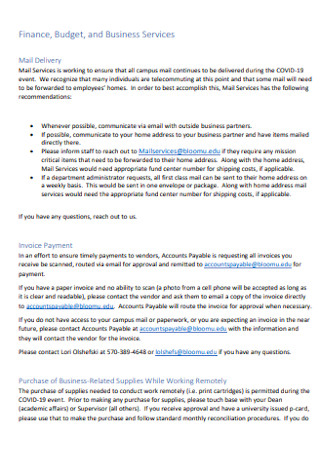
Marketing Business Service Budget
download now -
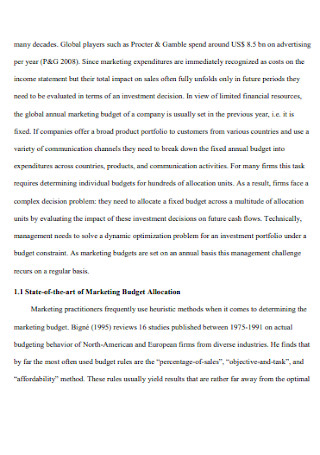
Dynamic Marketing Budget
download now -
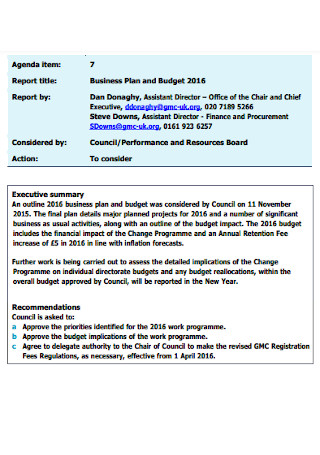
Marketing Business Budget Format
download now -
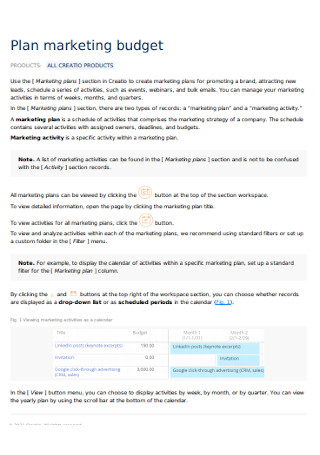
Marketing Plan Budget Template
download now -
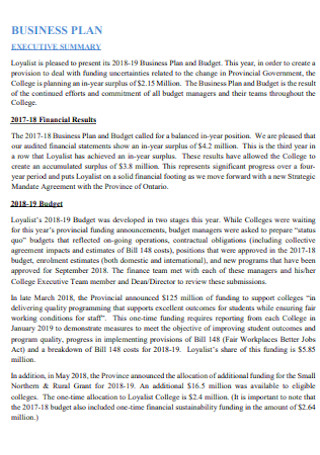
College Business Budget Template
download now -
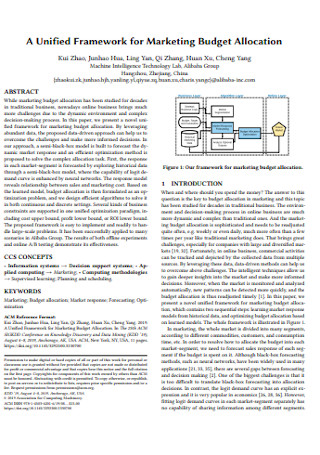
Framework for Marketing Budget
download now -
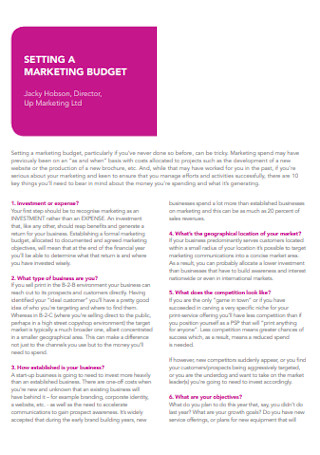
Standard Marketing Budget Template
download now -
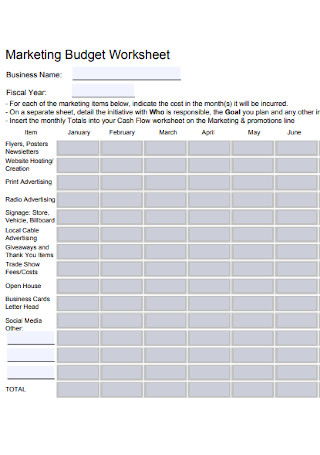
Sample Marketing Budget Worksheet
download now -
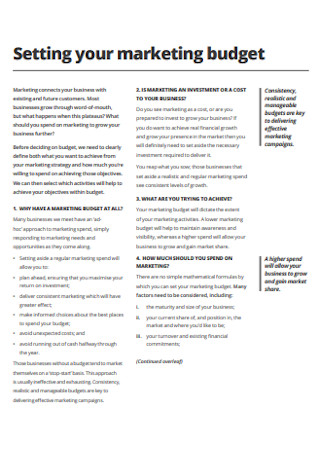
Formal Marketing Budget Template
download now
What is a Marketing Budget?
A business plan isn’t complete without a marketing plan. And a marketing plan entails creating a marketing budget that will outline all the money that a company, small business, or startup intends to spend on any marketing-related activities within a specified period. It is documentation on how much a business plans to spend on marketing strategies over a year, quarter, or month.
When budgeting for marketing, all costs associated with marketing should be considered in the business plan. It usually includes various expenses beyond business advertising and marketing strategies like hiring costs for new marketing staff, paid ads, marketing tools and automation software, promotions, and branding, among others.
Having a marketing budget is especially important for a small business and on average, the US Small Business Administration recommends that small business owners spend about 7 to 8 percent of their total gross revenue on it. Most likely than not, small business owners will not have enough experience drafting a plan and drawing up a budget for their marketing strategies despite being a critical aspect in scaling their business. Furthermore, small businesses need to keep their overall costs low and lean as they expand their business. However, it is just important that they employ paid marketing activities in order to scale.
On the other hand, startup companies have a different marketing budget story. Generally, startup marketing budgets play around 11% of a startup’s total revenue. They do this in order to build their brand as well as increase brand awareness among their target customers, as well as to start attracting leads.
Why You Should Have a Marketing Budget
The current marketing landscape is filled with clout and the only way to stand out is through a witty and attention-grabbing marketing strategy. Here are some other reasons why you need to have a marketing strategy for your business.
Keeping You on Track Financially
In developing marketing strategies, your small business marketing budget will keep you stay on track financially. You avoid drawing up plans that are unrealistic given your current budget. When creating your marketing budget, you will be able to keep track of how much you spend on your strategies like social media and digital marketing promotions, out-of-home advertising, and even traditional channels like television and radio. You can easily check if you are overspending or if you have enough leeway to spend more on a specific channel. Without a marketing budget, you will most likely overspend for your marketing activities and may cause your business to fail.
Allocating Funds in the Right Channels
For small business owners, every penny counts, and a marketing budget will definitely help ensure that your funds are put to good use in the right channel—be it online, below-the-line advertising, or traditional marketing. Knowing where you spend, how much you spend, and how it will be used will maximize your money’s value and returns. A marketing budget will allow you to identify the best strategies that will work with what you currently have or if a certain marketing and advertising budget fit your budget.
Setting Benchmarks and Goals
A well-defined marketing budget will help you set realistic benchmarks and goals so you can you’re your business forward. Your marketing budget can be used as a gauge on whether you have realistic expectations and targets for your various marketing strategies on different channels. You will also develop a better understanding of the revenue that you need to earn to make your marketing efforts worthwhile.
Planning for Long-Term
A yearly marketing budget plan will provide you with the opportunity to create a longer-term plan for your marketing strategies. This will also give you an idea of where to adjust based on your current performance—do you need to change channels? Ramp up marketing activities? Or perhaps stick to your original plan? This long-term outlook will avoid any conflicts arising from additional marketing spend or ending campaigns earlier due to changes in funding. Aside from building some flexibility around your budget, a long-term marketing plan will enable you to create a more consistent marketing strategy and as a result, effective campaigns and positive returns.
Investing in Business’s Growth
When you think about it, marketing strategies and methods seem like cost-incurring activities for your business. However, marketing is also an investment for your business. It’s an important aspect when it comes to growing and scaling your business. By learning how to make a marketing budget, you give your business a chance for exponential growth and development. That’s why it’s important to think of marketing strategies as an investment more than a cost. With proper planning, you can further maximize your advertising budget or come up with low-cost marketing strategies.
Marketing Costs Breakdown
Implementing marketing campaigns is an essential part of marketing strategies and spending on them is, unfortunately, a non-negotiable requirement. What is negotiable is the amount you allocate and spend on them in your marketing budget. As you build your budget, you may want to keep in mind the following items when you plan your marketing budget allocation:
How to Plan a Marketing Budget
There is no such thing as a perfect marketing budget and there is no one-size-fits-all type of marketing budget template you can download. Usually, a marketing budget, demands focus, time, and effort. The right budget allocation relies heavily on your business, customers, and other factors. If you’re only getting started, drawing up your own marketing budget can feel like a chore. And spreadsheet knowledge alone can’t help you come up with an effective marketing strategy to grow your business. Here’s how you can create a sound marketing budget:
Step 1: Understand Your Customer’s Purchase Journey
You need to know the steps that your buyers take when as they become your paying customers. Understanding their mind process allows you to determine how to craft and implement an effective marketing campaign that will interact with them. This will also give you an idea of what goals you will set as well as the budget you need to allocate to reach them.
Asking the following questions will help you define your customer’s purchase journey:
- What are your customers’ sources of awareness in terms of new products and services?
- What are their considerations before making a purchase?
- How of they avail of your products and services?
- What is the cost of generating new leads and then converting them to customers?
- What’s the typical value/revenue of each lead?
Step 2: Align Your Budget with Your Marketing Goals.
What do you want to accomplish? This should be the question to ask yourself when you plan your marketing strategies. Setting your goals will also help you allocate a realistic budget to accomplish them. Your marketing budget can also help you create strategies that will not only achieve your marketing goals but also keep your expenses lean and cost, low.
That’s why it’s really important to keep in mind that when creating a marketing budget, you are only spending money on things that are aligned with your marketing goals—nothing else. And these goals must be set based on customers’ purchase journey.
Step 3: Make All Costs Transparent
One of the best things about a marketing budget is that all costs become transparent. You can avoid freaking out not knowing where you spent your money on. Product marketing isn’t just focused on product launches and promotional activities but also on pre-marketing activities like market research and testing. These activities will help you craft a marketing communication that will address the needs and wants of your customers.
Step 4: Prioritize Necessary Items to Spend On
Marketing has a lot of add-ons that can turn your strategies into “premium” versions. However, most of the time, these add-ons are not necessary. One of the best ways to evaluate the nice-to-haves versus absolutely necessary items is to organize your marketing expenses. Keeping tabs on your budget allocation and cross-checking them with the results that you want will help you determine which strategies you should keep or which ones you need to terminate. By doing this, you will remove the things that only create clout and unnecessary noise around your brand or business.
Step 5: Ensure Wise Budget Spending
Spending on every marketing channel available may look ideal, but it really isn’t. Don’t worry if you can’t tick off every strategy and activity that’s available—always-spend-more in marketing doesn’t always work. Thoughtful marketing spend is a smarter approach and will generate more returns if implemented properly. The items listed in your budget plan are not mandatory—they should be used as a guide and will help you see hidden costs.
Step 6: Measure Your Return on Investment
As a general rule of thumb, when you put money into something, you should determine if it’s income-generating or not. You should always check if your marketing budget is working for you or if it’s only hurting your business. If you’re seeing business growth from where you’re spending money on, then perhaps you might want to consider adding more to it. However, if your money went nowhere, you may want to reconsider your marketing investment.
FAQs
Why is a marketing budget needed for small businesses?
A marketing budget is important because it can provide you with a clear sense of direction in terms of where you want your business marketing efforts should focus. It also helps allocate your business’ scarce financial resources more effectively.
Is it really required to spend so much on marketing strategies?
For small businesses, it doesn’t have to be. But paid advertising also really helps small businesses to thrive and grow to scale. Your marketing budget does not have to be exponentially high—you can spend just enough amount of money to get the word out about your business, products, and services that you offer.
How do you allocate your marketing budget?
There are several ways for allocating a marketing budget. But as a rule of thumb, you should put your money into the most effective channel that will generate you more ROI. You may consult with experts to help you determine the best channels that are right for you.
It doesn’t matter if you’re only starting out with a marketing budget or not, and creating one for your small business doesn’t have to overwhelm you. Even a tight budget shouldn’t stop you from planning your marketing strategies. All you really need to have is an understanding of your customer’s purchase journey and knowing their primary sources of information so you can reach and interact with them in those channels. This will help you allocate your money properly and see your investment grow. All the knowledge you will gain when you start will be useful in the years to come.